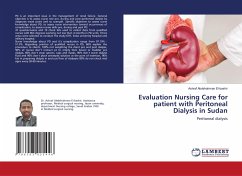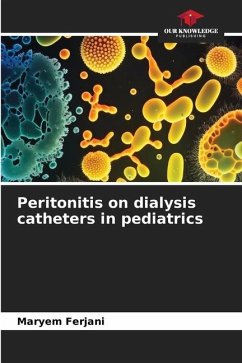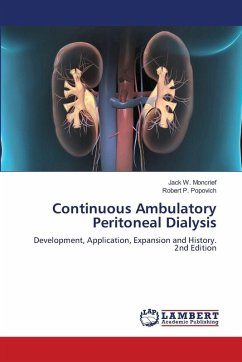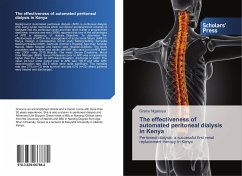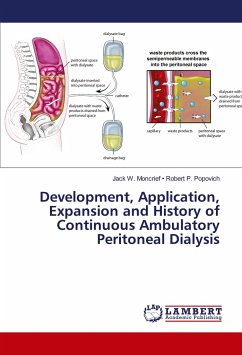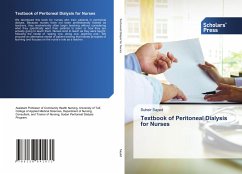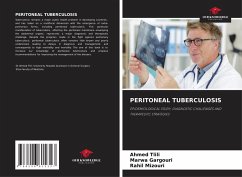
Prevention of infection in peritoneal dialysis
What's real and what's not?
Versandkostenfrei!
Versandfertig in 6-10 Tagen
29,99 €
inkl. MwSt.

PAYBACK Punkte
15 °P sammeln!
Peritoneal dialysis is one of the methods of extrarenal purification in patients with end-stage renal disease and receiving replacement therapy.In 2015, estimates suggest that 272,000 people are on peritoneal dialysis worldwide about 11% of the dialysis population. Infectious complications are the most feared complications of this technique. There are two main types of infections: infections of the catheter outlet and infections of the dialysis fluid. These peritonitises occur essentially as a result of contamination during handling, or either by continuity following an outlet infection or in ...
Peritoneal dialysis is one of the methods of extrarenal purification in patients with end-stage renal disease and receiving replacement therapy.In 2015, estimates suggest that 272,000 people are on peritoneal dialysis worldwide about 11% of the dialysis population. Infectious complications are the most feared complications of this technique. There are two main types of infections: infections of the catheter outlet and infections of the dialysis fluid. These peritonitises occur essentially as a result of contamination during handling, or either by continuity following an outlet infection or in relation to a bacterial translocation through the digestive wall.The objective of this work is to evaluate the theoretical knowledge and practical conduct of young Tunisian nephrologists in terms of prevention of infectious complications in order to detect the difficulties encountered and remedy them.






